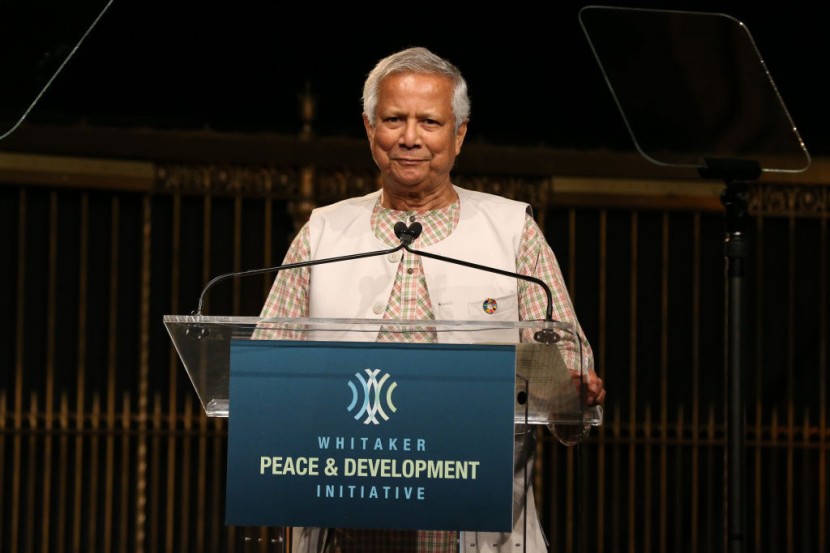Bangladesh convicted Nobel Peace Prize winner Muhammad Yunus of violating the country's labor law and sentenced him on Monday to six months of imprisonment.
In 2006, 83-year-old Yunus and his Grameen Bank won the peace prize for their work in lifting millions of people out of poverty. They did this by granting tiny loans of under $100 to the rural poor of Bangladesh, pioneering a global movement that is now known as microcredit.
Bangladesh Sentences Muhammad Yunus to Prison

However, Bangladesh Prime Minister Sheikh Hasina accused Yunus of "sucking blood from the poor." Supporters of the Nobel Peace Prize winner argued that the government is simply trying to discredit Yunus because he previously considered setting up a political party to rival Hasina's Awami League.
On Monday, economist Yunus and three employees from Grameen Telecom were convicted of failing to create a welfare fund for its workers. In a statement after the verdict, the Nobel Peace Prize winner said that the verdict against him was contrary to all legal precedent and logic, as per Reuters.
He called on the Bangladeshi people to speak out in one voice against injustice and in support of democracy and human rights for each and every one of the country's citizens. The court that handed the verdict, in response to petitions submitted by the accused, granted them bail pending a possible appeal.
Prosecutor Khurshid Alam Khan said that the court had granted bail and gave Yunus' team one month to file an appeal against the verdict. A lawyer for the Nobel Peace Prize winner, Abdullah Al Mamun, said that Yunus would appeal against the court's verdict. He described the case as politically motivated and designed to harass him.
Currently, Yunus is facing more than 100 other charges over labor law violations and alleged corruption. On the other hand, several human rights groups have accused the Bangladeshi government led by Hasina of targeting political dissent.
The guilty verdict against Yunus comes a few days before the country's general election in which Hasina is seeking a historic fifth term in office. This follows what critics have described as a systematic campaign to sideline opponents and silence dissent, according to the Financial Times.
Alleged Violations of Labor Law
In the build=up to the vote on Sunday, law enforcement personnel arrested thousands of members of the main opposition party. The latter has since dropped out of the electoral race in Bangladesh.
Since winning the Nobel Peace Prize in 2006, Yunus has repeatedly clashed with Hasina and he briefly founded a rival party in 2007. The prime minister previously mused in a speech that someone ought to teach Yunus a lesson.
During Yunus' Nobel lecture, he said that human beings are not born to suffer the misery of hunger and poverty. He then dared his audience to imagine a world where deprivation was confined to history museums and was not rampant across the world.
After Hasina came back into power in 2008, the Nobel Peace Prize winner has been hit with a series of criminal cases and a smear campaign by a state-led Islamic agency. They have accused Yunus of promoting homosexuality, said Business Inquirer.
© 2025 HNGN, All rights reserved. Do not reproduce without permission.








